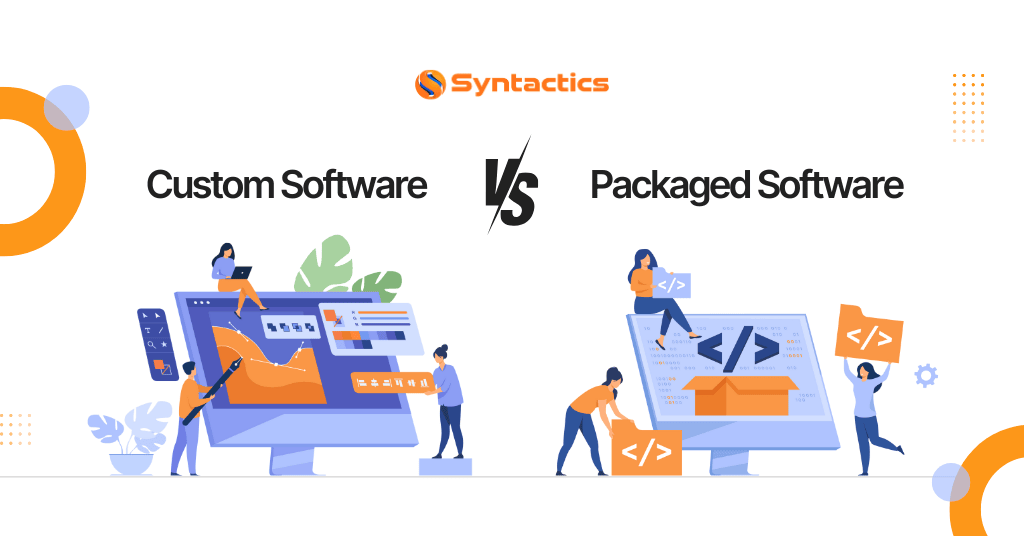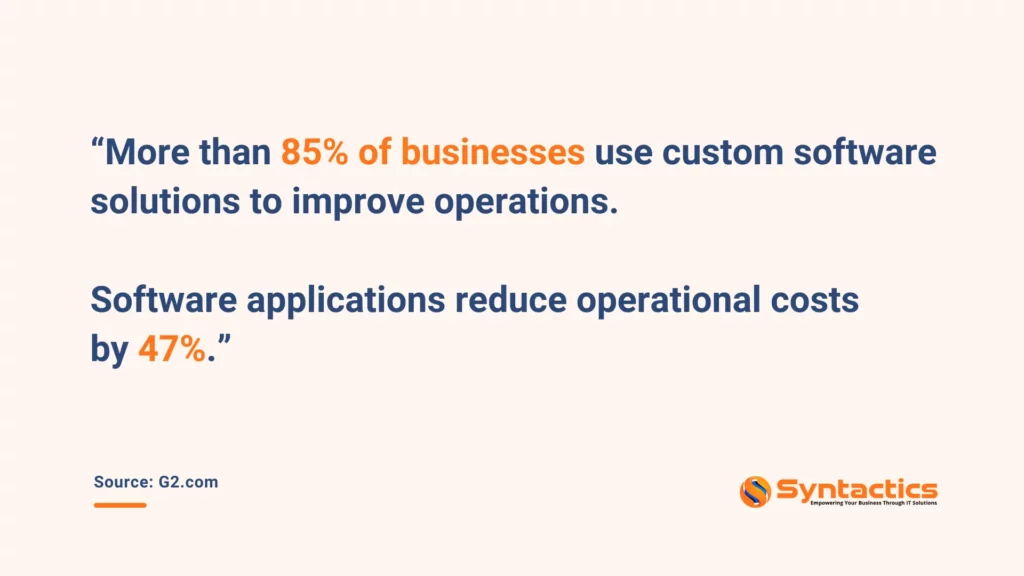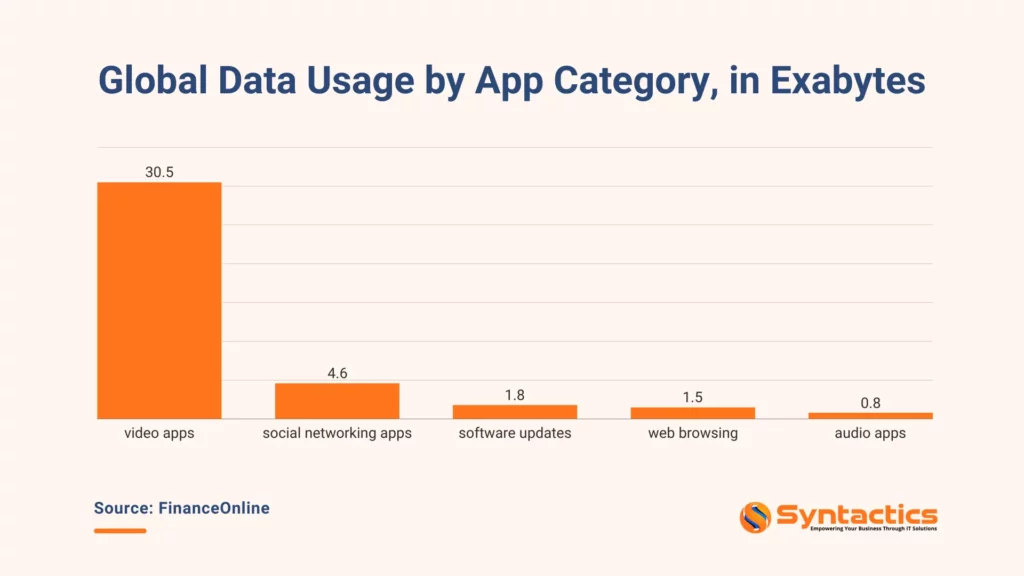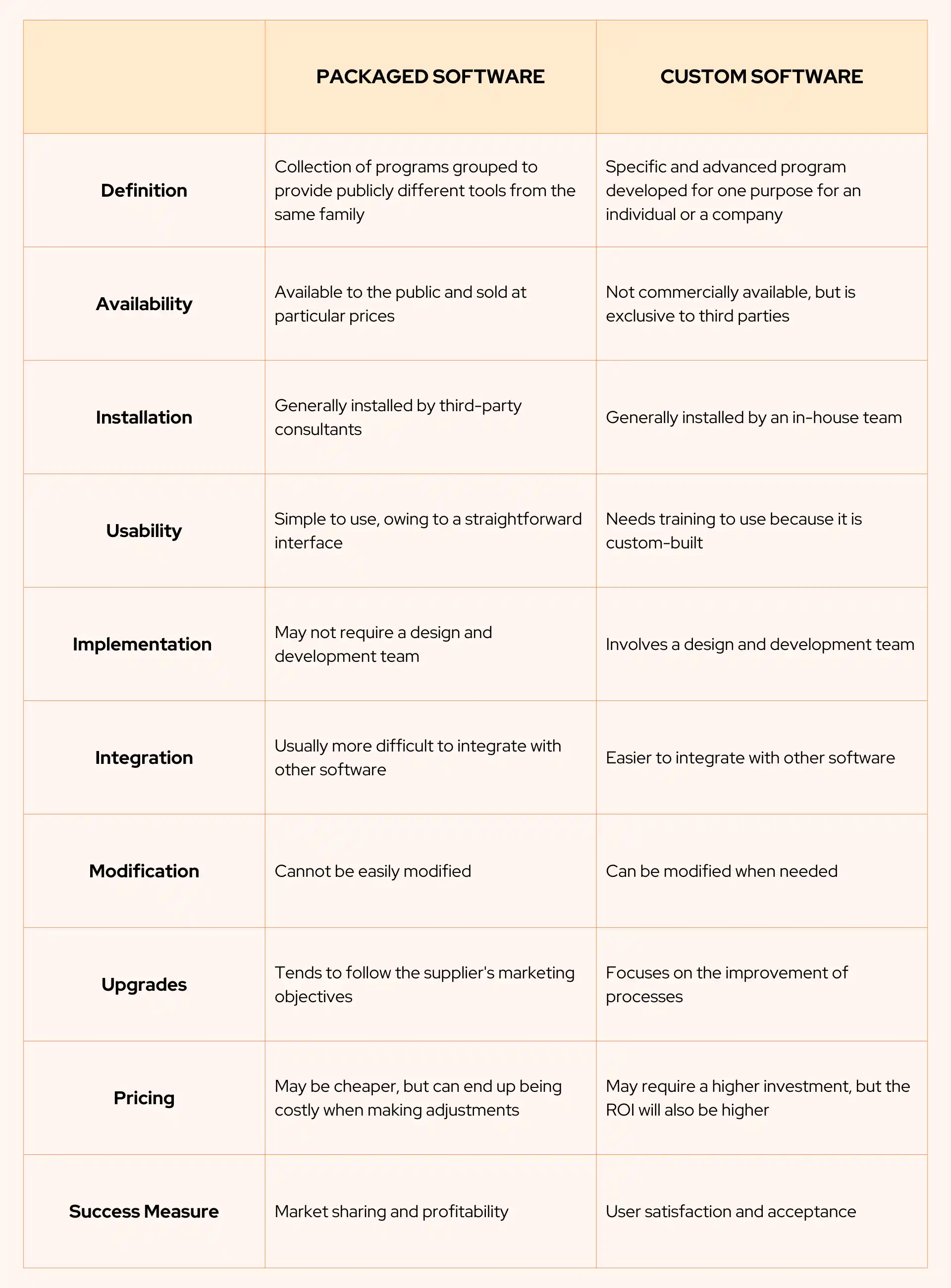
Custom Software vs. Packaged Software
In software development, the terms “custom software” and “packaged software” appear very similar to each other. However, they represent distinct solutions, making it critical for business owners to understand the differences between custom and packaged solutions to find the best fit for their needs.
Choosing the Software that Best Suits Business’ Needs
Firstly, custom software is made for a specific purpose. While it’s more expensive, it offers the flexibility to be altered and adapted as needed.
Meanwhile, packaged software is sold to the public as is and includes programs grouped to perform different functions.
By learning various similarities and differences between the two, business owners can identify which option is best suited to their needs and deliver effective solutions.

Source: G2.com.
3 Key Types of Software
There are three software types: system, programming, and application.
System Software
System software is vital for a computer to function properly, as it provides core functions. Often, these include Operating Systems (OS), utilities, and disk and hardware management.
In particular, this software is responsible for managing resources, facilitating communication between hardware and software components, and ensuring efficient app performance.
Common components of system software include the following:
- The OS
- Device drivers
- System utilities
- Disk management software or tools
- Bootloader
- Virtualization software or tools
- Firmware
System software offers a crucial layer of abstraction for efficient hardware interaction, often utilizing platforms like .NET development services.
These services help create versatile and scalable system software, essential for seamless hardware-software communication and optimal resource management. As a result, this type of software enables computers to function efficiently.
Programming Software
Programming software or development tools assist developers with writing, testing, and debugging code. Moreover, they provide tools like linkers, text editors, debuggers, and compilers to create code.
Here are some examples of programming software that improves productivity and enhances the quality of development projects:
- Text editor tools
- Integrated Development Environments (IDEs)
- Compilers
- Debuggers
- Linkers
- Version control systems or tools
- Integrated build systems
- Profilers or profiling tools
- Code linters
- Documentation generators
Application Software
Lastly, application software or apps help users perform specific tasks. Unlike system software, which is critical to a computer’s core operations, apps are user-focused and serve various purposes, catering to specific needs and interests.
As a result, application software includes media players, security programs, and data management software. They also include programs used to shop, socialize, and post pictures online, such as Lazada, Facebook, Twitter, or Instagram.

Source: FinancesOnline.
Here are some other types of business applications:
- Customer Relationship Management (CRM) systems
- Customer support and helpdesk software
- First-In, First-Out (FIFO) inventory systems
- Restaurant management software
- Electronic Medical Records (EMR) systems
- Pharmacy management software
- Customized automation software for construction
- Synchronized accounting systems or software
- Point of Sale (POS) systems
- E-Invoicing software
- Project Management Software or Systems (PMS)
- Homeowners Association (HOA) management software or systems
- Document tracking systems
Custom vs. Packaged Software
In this digital era, people utilize various software on devices such as mobile phones, laptops, desktops, etc. They can be classified as custom or packaged.
Custom Software
Custom software is a specifically developed program created for a particular purpose. As such, it tends to be priced higher than packaged applications, depending on its purpose and complexity.
However, unlike its packaged counterpart, custom software can be altered or modified when needed. This adaptability is one of the factors contributing to its high software development costs.
For instance, a business may request a software development company to develop a custom-built management system to keep track of its employees’ working hours.
Packaged Software
While custom solutions are made specifically for an individual or an organization for a purpose, packaged software is made available for public consumption. It’s developed and sold by developers for an actual market price.
Moreover, packaged software is a collection of programs grouped to perform different functions. As a result, users will find it difficult to modify or alter the programs.
Generally, developers group these programs, give them a specified name, and provide them as solutions to consumers.
A clear example of packaged software would be Microsoft Office, which includes tools such as Word, PowerPoint, Excel, Access, and Note.
Comparing Packaged Software vs. Custom Software
Here’s a table comparing the two types of software:
Addressing Business Needs with the Right Custom Software Development Partner
Through custom software development, developers can address a business’ specific objectives and needs. They offer tailored solutions by designing, building, integrating, scaling, and upgrading software solutions.
Implementing custom software in business workflows offers a variety of benefits.
Collaboration with a custom software development services provider can result in tailored solutions that seamlessly meet specific requirements, improving efficiency and streamlining business processes!
When selecting prospective partners, it’s important to check their previous projects to see if they can cater to a business’ specific needs.
In addition, it’s vital to hire a software development company that values the significance of finishing a project on time. You can also visit their social media pages or business websites to evaluate their online presence and reputation in the field.
Conclusion
Many business owners implement software into workflows for greater efficiency. However, it’s essential to properly weigh decisions first and consider the question of custom vs. packaged software.
While it’s true that the market offers countless programs and tools to help improve workflows, they can‘t cater to all business types and requirements. After all, certain companies require software solutions that can be easily adjusted according to their needs.
Fortunately, a custom software development company from the Philippines can build customized software, programs, and applications tailored to client needs. Maximize work efficiency while increasing profits and Return On Investment (ROI)!
This blog was updated on December 18, 2024.
Frequently Asked Questions About Custom and Packaged Software
What is software development?
It’s the process of designing, creating, testing, and maintaining applications or systems to address specific needs.
What specific industries benefit most from custom software over packaged software?
The following industries benefit the most from custom software:
- Healthcare
- Finance
- eCommerce and retail
- Logistics and transportation
- Education
How does the cost of maintaining custom software compare to packaged software over time?
Custom software generally involves higher upfront development costs compared to packaged solutions. But, because it’s professionally designed and tailored to specific needs, it often results in lower long-term maintenance costs.
Meanwhile, packaged software costs less initially but requires recurring licensing fees, periodic upgrades, and additional expenses for features or integrations.
What are key factors to consider when choosing between custom and packaged software for scalability?
Here are factors to consider when choosing between custom and packaged software for scalability:
- Growth potential
- Integration needs
- Budget or financial constraints
- Development timeframe
- Flexibility and adaptability
- Technical support


















Comment 0